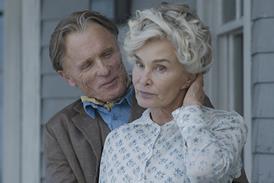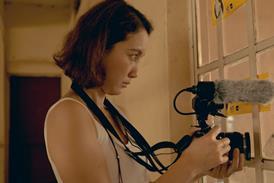Though the broadcast was planned before the film's win, the great amount of additional press combined with NHK's Digital BS-hi high-definition current subscriber base of 20m people across Japan, will offer the largest potential audience Kawase's work has ever received. It is unclear whether the broadcast will increase the film's box office take, or take away from it.
Despite considerable praise abroad, Kawase's films have traditionally had very small releases domestically. Kawase's own company Kumie is acting as theatrical distributor, opening the film at art-house Cinema Angelica in Tokyo's Shibuya district, with later screenings planned in other major cities.
The Mourning Forest depicts the arduous journey of a young female caregiver and an elderly widower as they bond in the dense mountainous woods of Western Japan.
France's Celluloid Dreams (now part of Dreamachine) was the film's main backer, and the budget was about $810,000.
Following the film's low budget origins, a public support system was set up before the release of the film to fund the creation of advertising materials and screenings.
The win continues the praise Kawase's work receives overseas, especially in France.
Kawase previously won the Camera d'Or for her first feature Moe No Suzaku exactly ten years ago in 1997. That film was the debut of actress Machiko Ono, who also stars in The Mourning Forest. Kawase's third feature Shara competed for the Palme d'Or in 2003. The last Japanese film to win the Grand Prix was The Sting Of Death (Shi No Toge), in 1990.






















No comments yet